Webinars
The Global Handwashing Partnership offers webinars on topics related to handwashing with soap, including behavior change, hygiene advocacy, and program integration.
2019 webinars
2018 webinars
- Systems approaches to hygiene behavior change – lessons across WASH, health, and education
- The forgotten juncture? Handwashing and safe management of child feces
2017 webinars
- Clean Hands Prevent Cold & Flu: Protect yourself through good hygiene
- WASH Counts in Healthcare Facilities: From awareness to action
- Norms, nudges, or addiction? Understanding drivers for handwashing behavior change.
2016 webinars
- WASHing Away Diseases Two Hands at a Time
- The Ebola Crisis & Innovative WASH Solutions
- Fostering WASH & Wellbeing in the Workplace
2014-2015 webinars
- Handwashing and the Science of Habit
- Healing Hands: The Next Frontier in International Health and Development
- World Health Day: Handwashing and Global Food Hygiene
For webinars exploring findings from Handwashing Think Tanks, please visit the Think Tanks page here.
Norms, nudges, or addiction? Understanding drivers for handwashing behavior change.
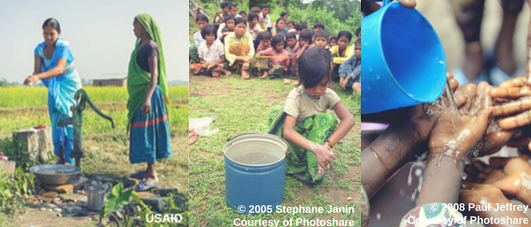
Speakers: Dr. Reshmaan Hussam, Harvard Business School; Dr. Hans Mosler, EAWAG; Nga Kim Nguyen, USAID
Handwashing with soap is one of the most effective ways to prevent diseases, but behavior change to increase handwashing remains a challenge. The Global Handwashing Partnership and USAID co-hosted this webinar to focus on behavior change approaches for handwashing with soap. The webinar gave participants ideas and perspectives to use on Global Handwashing Day and throughout the year.
Dr. Reshmaan Hussam, Assistant Professor of Business Administration at Harvard Business School, presented key takeaways from an experiment in India exploring the role of habit formation in increasing handwashing rates, as well as a novel technology to measure handwashing behavior.
Prof. Dr. Hans Mosler, a Professor of Social Psychology at the University of Zurich and the Group Leader for Environmental and Health Psychology at EAWAG, discussed the RANAS model and how it was used to change handwashing behavior among schoolchildren and caregivers in Zimbabwe.
Nga Kim Nguyen, Senior WASH and Social Behavior Change Adviser at USAID, moderated the webinar and facilitated an active discussion to help participants apply these results and ideas for formative research, program design, and more.
Read the full summary and learn how you can access the webinar recording, slides, and recommended readings here.
WASH Counts in Healthcare Facilities
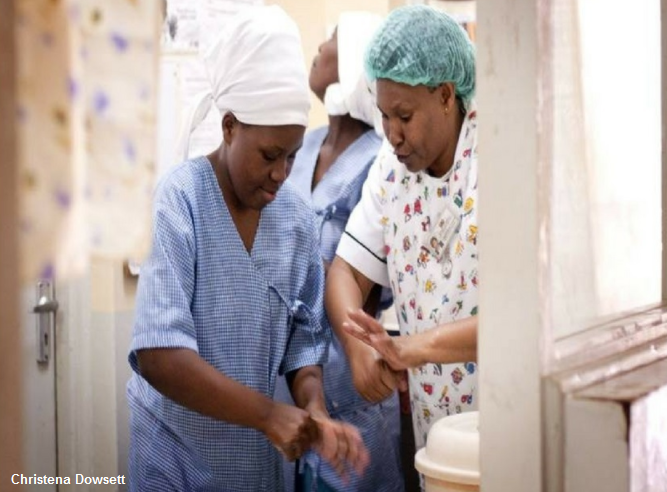
Speakers: Arabella Hayter, WHO; Ian Moise, USAID’s Maternal & Child Survival Program; Dr. Mbola Razafimahefa, ABMS/PSI; Michael Gately, Medentech
Hand Hygiene Day takes places annually on May 5th. To help celebrate, the Global Handwashing Partnership, Medentech, World Health Organization, USAID’s Maternal & Child Survival Program, and the Beninese Association for Social Marketing held this webinar to highlight the importance of WASH in healthcare facilities to prevent the spread of healthcare-associated infections. Speakers explored ways to catalyze behavior change around proper hygiene compliance, highlighted existing recommendations intended to improve WASH conditions, and shared how their organizations are innovating to improve safer conditions, services, and quality of care in health settings.
Read the full summary and learn how you can access the webinar recording, slides, and recommended readings here.
Clean Hands Prevent Cold & Flu: Protect yourself through good hygiene
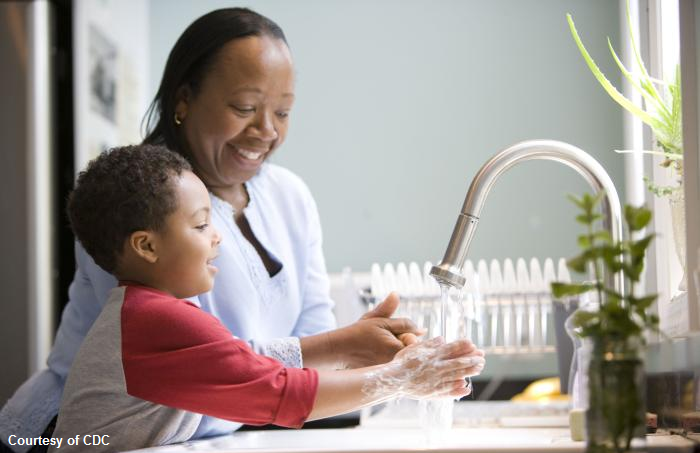
Speakers: Vince Hill, CDC; Martha Chapin, American Cleaning Institute; Kyle Foerst, St. Louis County Department of Public Health
There are millions of cases of cold and flu annually. In the United States, cold and flu season typically lasts from early October until May, with peak transmission in January and February. Flu infections can result in hospitalization and sometimes even death, particularly for vulnerable populations (e.g., infants, pregnant women, those living with chronic respiratory conditions and suppressed immune systems). Cold and flu infections represent the main health-related reasons for absenteeism from school and work, thus imposing a heavy toll on education and the economy. According to the U.S. Centers for Disease Control and Prevention (CDC), direct medical costs related to the flu are estimated at $10.4 billion a year. As there is no vaccine for the common cold and the flu vaccine only reduces the risk of contracting the contagion, handwashing with soap is essential for preventing these two infections.
In this webinar, the Global Handwashing Partnership, the CDC, American Cleaning Institute, and the St. Louis County Department of Public Health examined and the consequences poor hand hygiene can have and outlined how handwashing with soap can increase protection against cold and flu. Presenters also highlighted how federal agencies, local governments, and nongovernmental organizations are innovating to combat these two infections.
Read the full summary and learn how you can access the webinar recording, slides, and recommended readings here.
Fostering WASH & Wellbeing in the Workplace
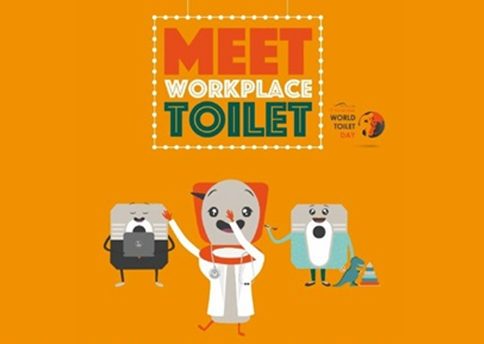
Speakers: Daniella Bostrom, UN-Water; Cindy Kushner, UNICEF; Mai-Lan Ha, CEO Water Mandate; Isabelle Herszenhorn, WaterAid
According to the U.N. Joint Monitoring Programme, 2.4 billion people globally do not have access to a toilet, and of them, nearly 1 billion people defecate in the open. The Sustainable Development Goal 6 Target 2 mandates that access to water, sanitation, and hygiene be available to all people, at all times, everywhere. Yet, the role of businesses is often overlooked in creating access to safe sanitation and hygiene facilities in the workplace. Failing to meet the WASH needs of workers and adhere to sanitary workplace conditions can have serious financial implications. For instance, global economic loss due to poor WASH is estimated to be $260 billion annually. Investing in toilets provides numerous benefits that far outweigh the costs, and access in the workplace can help keep employees in good health, which in turn strengthens productivity, revenue, and ultimately economies.
To commemorate World Toilet Day, which takes place yearly on November 21, UNICEF, UN Water, CEO Water Mandate, and WaterAid spoke on the importance of sanitation and hygiene in the workplace for employee health and well-being. Presenters explored how to translate learning into action, catalyze progress going forward to improve workplace sanitation and hygiene, and consider how the private sector can scale access to WASH for workers, in the communities where they operate, and across supply chains.
Read the full summary and learn how you can access the webinar recording, slides, and recommended readings here.
The Ebola Crisis & Innovative WASH Solutions
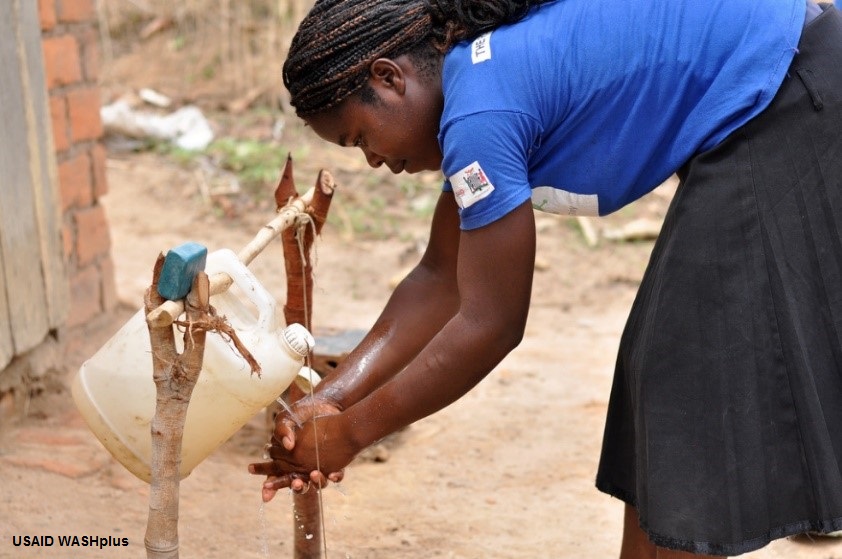
Speakers: Alice Urban & Franky Li, Global Communities; Gaelle Fohr, on behalf of UNICEF;
Dr. Nora Chea, CDC
Sustaining long-term WASH practices are essential for strong public health systems which are influential in preventing the resurgence of diseases such as Ebola and preventing future outbreaks. For this reason, the Global Public-Private Partnership for Handwashing hosted a webinar in collaboration with Global Communities, UNICEF, and the U.S. Centers for Disease Control and Prevention (CDC) exploring how innovative WASH and social behavior change solutions were critical in halting the West Africa Ebola crisis and how their programs are supporting the recovery process and promoting ongoing community health and well-being.
Read the full summary and learn how you can access the webinar recording, slides, and recommended readings here.
WASHing Away Diseases Two Hands at a Time
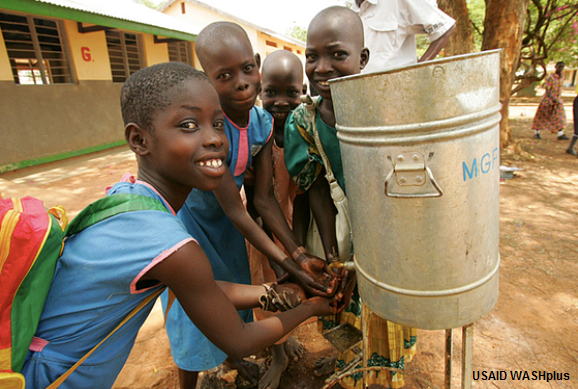
Speakers: Merri Weinger, USAID; Renuka Bery & Edouard Tianhoun, WASHplus; Dr. Sophie Boisson, WHO; Yael Velleman, WaterAid; Geordie Woods, Sightsavers
When we think of the health impact of WASH interventions, we oftentimes think of reduced rates of mortality and morbidity from diseases such as diarrhea and pneumonia, a decreased risk of infections in healthcare facilities, and the potential for improved nutritional outcomes. However, we should not overlook the impact of WASH on reducing the prevalence of some neglected tropical diseases (NTD).
That was the topic of the GHP/USAID WASHplus co-hosted webinar, where experts from USAID, the World Health Organization (WHO), Sightsavers, WaterAid, the USAID WASHplus Project, and the International Coalition for Trachoma Control came together and discussed the mutual relationship between NTD control and WASH promotion.
Read the full summary and learn how you can access the webinar recording, slides, and recommended readings here.
Handwashing and the Science of Habit
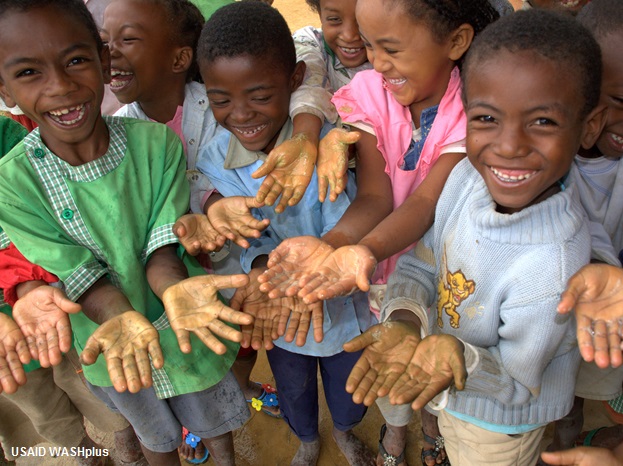
Speaker: Dr. David Neal, Catalyst Behavior Sciences & University of Miami
The Global Handwashing Partnership and the USAID WASHplus project co-hosted this webinar with David Neal, PhD, from Catalyst Behavior Sciences and the University of Miami. In this webinar, Dr. Neal emphasized ways to apply the basic science of habit and behavior change to real world health interventions and program delivery, with a focus on behavior change for handwashing with soap.
Watch the webinar recording here.
Healing Hands: The Next Frontier in International Health and Development
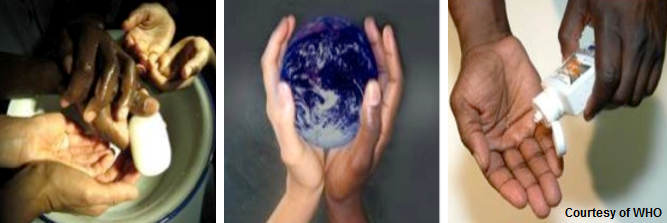
Speakers: Benedetta Allegranzi, WHO; Robert Aunger, London School of Hygiene & Tropical Medicine (LSHTM); Cyrus Engineer, Towson University; Dr. Layla McCay & Hanna Woodburn, PPPHW
Currently, every year millions of people get infections that could be prevented if healthcare workers practiced better hand hygiene–including an astounding 5-15% of everyone who receives inpatient hospital care around the world. That’s why May 5 is the World Health Organization’s call-to-action day to raise awareness and encourage improvements in hand hygiene in healthcare. In commemoration of this day, and to look more closely at this issue, the Global Handwashing Partnership convened this webinar.
Read the full summary and learn how you can access the webinar recording, slides, and recommended readings here.
World Health Day: Handwashing and Global Food Hygiene
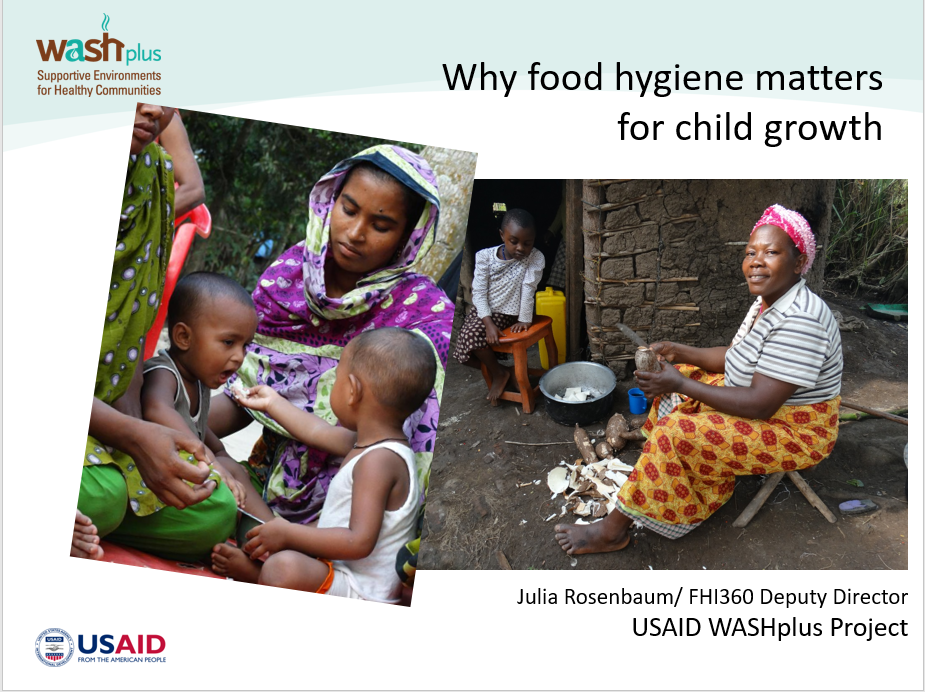
Speakers: Dr. Layla McCay, PPPHW; Julia Rosenbaum, USAID/WASHplus; Om Prasad Gautam, LSHTM; Sue Coates & Mamita Boro Thakkar, UNICEF
The GHP hosted this webinar to celebrate the 2015 World Health Day theme: food safety. Food hygiene is a particularly relevant topic for those of us working in handwashing.
In this webinar, experts from the PPPHW, the USAID WASHplus project, the London School of Hygiene & Tropical Medicine, and UNICEF explored why food hygiene matters for child health in the global context.
Watch the webinar recording here.